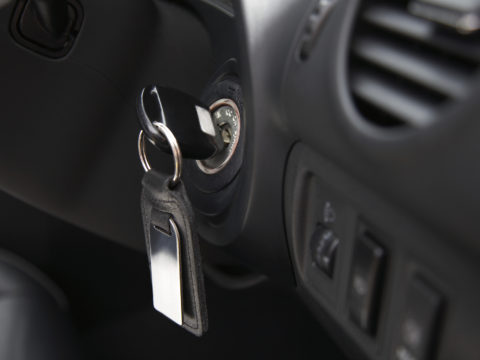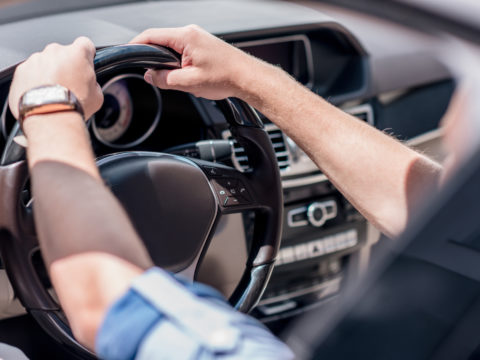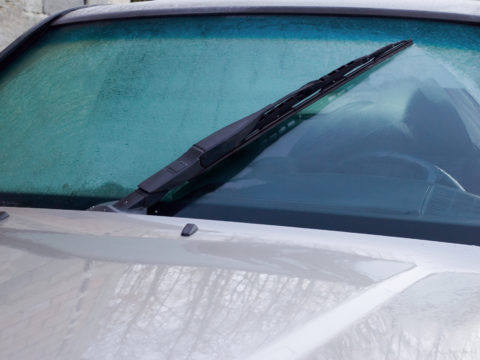That dreaded moment when your car doesn’t start can cause quite a panic if you are unsure what is wrong. In moments like that, a little information can go a long way. That’s why, in this guide, we review the reasons your car may not be starting and the possible solutions needed to get you moving again.
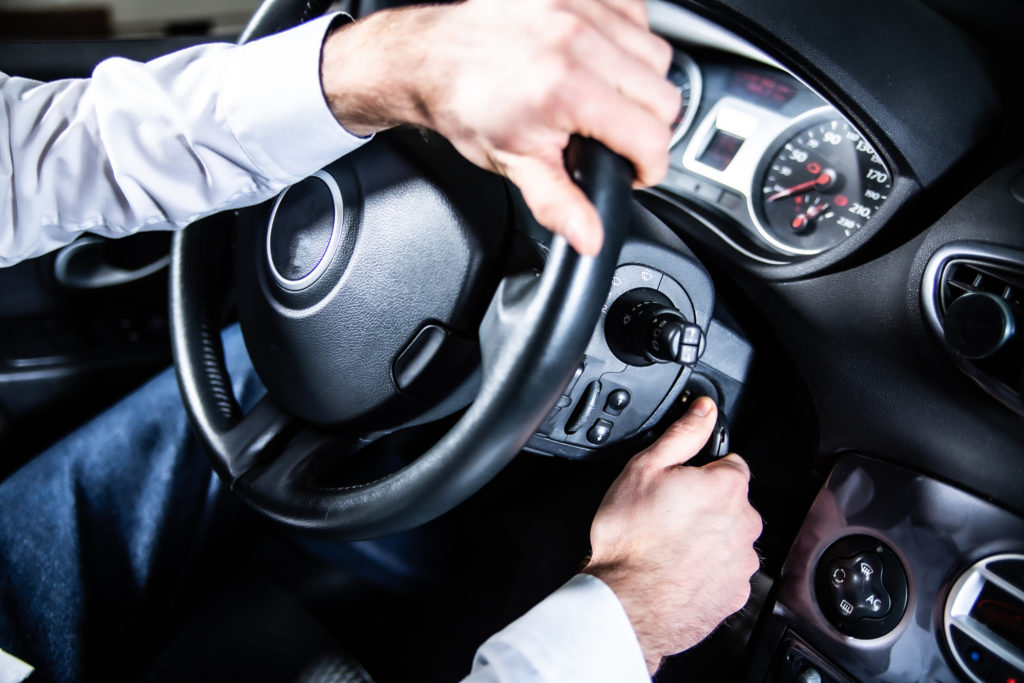
Contents
What Could Be Wrong If Your Car Hesitates To Start?
The most common reasons a car hesitates to start include battery or battery connection issues, a faulty ignition or starter motor, fuel supply issues, and faulty parts.
However, multiple factors may be preventing your car from starting, some of which are simple enough for you to correct yourself. Read on to learn about the problems that prevent your car from starting and some easy steps you can take to correct the problem.
What Causes Hard Starting Engines?
Hard starting engines can plague old and new vehicles alike. Some common issues with parts can be fixed by amateur owners, while others will require a visit to the mechanic. The challenge is to be able to identify the problem well enough to know if it is something you can fix yourself or if you need to call in reinforcements.
A Faulty Spark Plug
Spark plugs are responsible for delivering the spark that starts combustion in your car’s engine. Spark plugs may become dirty or damaged over time for multiple reasons. One common cause is a flooded engine which wets the spark plugs and makes it difficult to restart the car. Similarly, oil leaks and excessive carbon buildup can coat the spark plugs and prevent them from working.
Battery or Battery Connection Issue
A dead battery, or faulty connection, is the most common reason vehicles will not start. Fortunately, these problems are usually easier to detect as owners can see firsthand whether their car’s electrical systems are weak or non-functional. A jump start can get you going again if the battery is not working, but a bad battery connection may require cleaning or replacement of parts.
Inefficient Alternator
Since alternators are electrical generators that keep car batteries charged, a broken alternator can cause issues in maintaining electricity when your car is running. If you jump-start your car and it stops running immediately, the alternator is likely the cause. An overheating alternator may result in a burning smell; it is best to consult a mechanic for this type of issue.
Locked Steering Wheel or Jammed Ignition
Parking with a locked steering wheel can jam your ignition and prevent your car from starting. Fortunately, this issue can often be fixed by gently rocking the steering when the key is in and the wheel is locked. It may also be helpful to try this with a new or spare key, ensuring that you do not yank too hard on the wheel.
Clogged Fuel Filter
Your car’s fuel filter ensures that a steady stream of clean fuel flows from the gas tank to the fuel injectors which feed the engine. Fuel filters need to be changed on a routine basis to prevent clogging, but typically they will only cause your car to hard start if they are completely blocked.
What If a Car Struggles To Start but Runs Fine?
One reason a car may run fine but struggle to start is a defective ignition switch or starter motor. A faulty starter motor is one of the most common reasons people seek roadside assistance. Starter motors are attached to car batteries, and a clicking noise may accompany a broken starter motor. Faulty starter motors need to be checked by mechanics.
Possible Solutions
- A heavy keychain can put stress on the ignition switch. Do not carry too many keys on your car keychain to prevent this issue.
- Manually tap the starter motor. Sometimes the motor is fine, but the electrical contacts get stuck and need to be freed manually by tapping on them.
- Run a check using your car’s diagnostic system (if applicable), or visit a mechanic, to check that your engine sensors are fault-free.
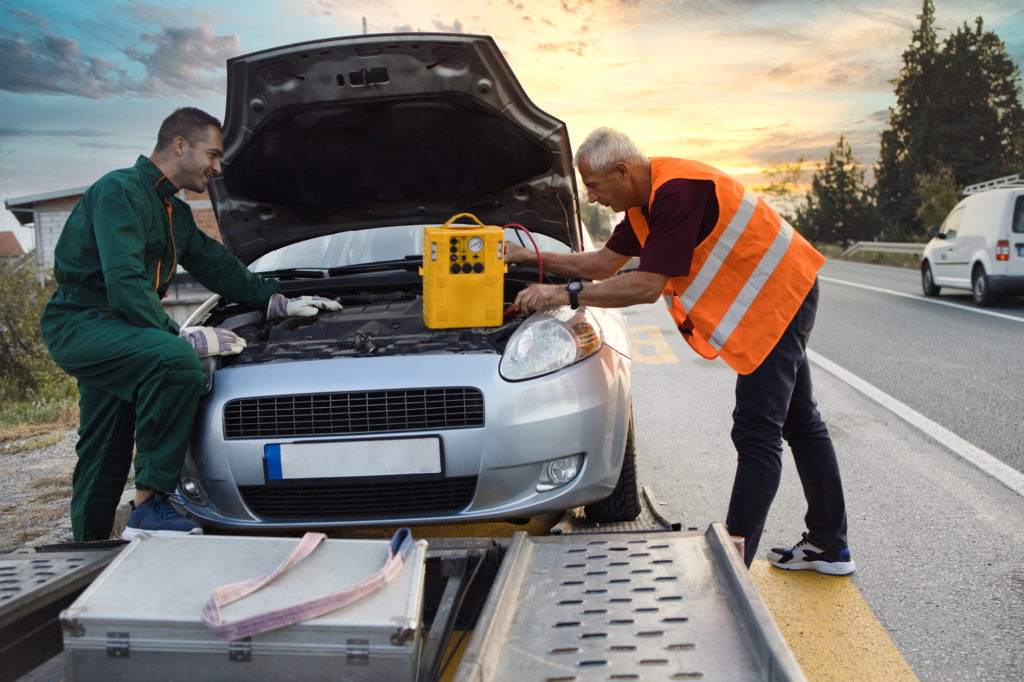
Car Hesitates To Start, and Check Engine Light Is Flashing
If your car will not start and the check engine light is flashing, your car likely detected a misfire caused by either your ignition or fuel delivery system. A flashing check engine light usually indicates a serious problem is present. However, the flashing lights also indicate that the battery is, at least, partially operational. In this scenario, you may also hear a rapid clicking sound when attempting to start the engine.
Possible Solutions
- Check that your spark plugs and ignition coil(s) are still intact and functioning correctly.
- Ensure the fuel pump and fuel lines are unclogged, and that fuel pressure regulators and injectors are operating correctly.
- Manually tap or adjust the connections on the battery terminals. If the battery is corroded, the terminals may need to be cleaned for the vehicle to run again.
Car Hesitates To Start With a Push-Button Start
Your key-fob battery may be dead. The push-button start needs to receive a signal from the key-fob before starting, which it will not receive if the key-fob battery needs replacing.
Possible Solutions
- Replace the key-fob battery.
- Check if you can start your car using an alternate, physical key. Many car manufacturers included a hidden physical key or battery-less alternative.
Car Hesitates To Start in Cold Weather
Batteries do not work well in the cold, and car batteries are no exception. If your car is hesitating to start in cold weather, it may be due to strain on the car battery.
Possible Solutions
- Turn off all electronics in your car to eliminate the unnecessary drain on the battery.
- Make sure you allow for enough time to start in cold conditions. Turn the ignition and leave it in place for up to 10 seconds, but no longer to prevent overworking the engine.
- Wait a few minutes in between attempts to start your vehicle.
Car Hesitates To Start When Hot
Vapor lock may prevent your car from starting in hot weather as fuel in the engine begins to boil on its way to the fuel injection system. Boiling causes bubbles, or vapor, to form and mix with fuel, preventing it from flowing smoothly. Vapor lock can also occur if fuel lines are too close to hot components of your car’s engine.
Possible Solutions
- Check if any of your engine fuel lines are near a hot part of the engine.
- Check for clogged fuel and vent lines or any other faulty engine parts which may be causing your car to overheat. Look over your car’s carburetor (if it has one) and check valves to ensure they are working correctly.
Car Hesitates To Start After Filling It With Gas
Fumes accumulate in the gas tank when you fill up your vehicle with fuel. These fumes are stored until the vehicle is operating at a speed where the purge valve opens, and the fumes can be used as fuel. A faulty purge valve will cause too much fuel to enter the engine’s combustion chamber and make it difficult to start after refilling the vehicle.
Possible Solutions
- Eliminate reasons your car may not be starting that aren’t related to fueling up. Check if your battery is weak or dead and ensure all parts mentioned earlier function correctly.
- Check the vapor canister purge valve to ensure it is not stuck open or broken.
What Do You Do When Your Car Hesitates To Start?
In this overview of the reasons your car may be hesitating to start, we explored multiple physical and environmental factors that may be causing problems in your car’s engine. Hopefully, this guide provided you with some self-directed steps you can take to figure out why your car is not starting and get you moving again.


